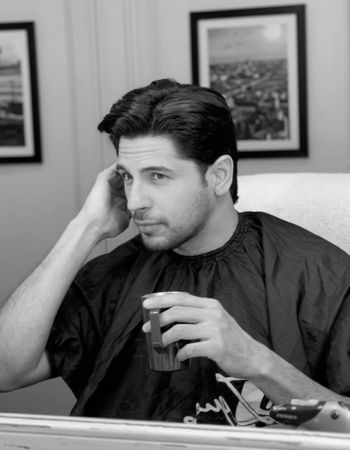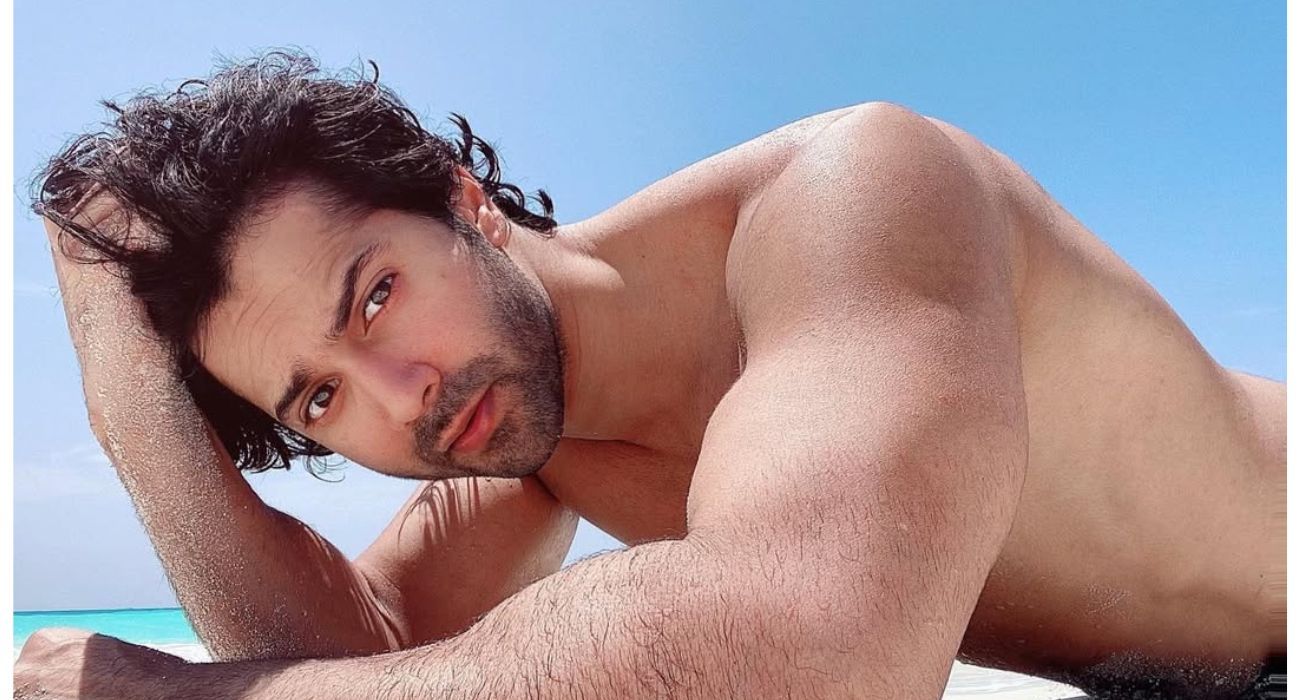You’re standing in front of the mirror, halfway through your morning routine, when you spot it—another grey hair. And then the internal dialogue begins: “Am I really greying already? Is it stress? Bad diet? Or the smoking?” It's just not you alone; in a recent interview, Virat Kohli mentioned how dyeing his beard every few days is a sign that you're nearing your retirement while commenting on his decision to retire from the Test format.
Premature greying is more common than ever, especially among men in their 20s and early 30s. And while your first instinct might be to panic or raid the hair dye aisle, understanding the why behind it can help you handle it whether you want to cover it up or rock it with confidence.
Why Is Your Hair Turning Grey So Early?
Hair gets its colour from melanin, the same pigment that gives skin its tone. As we age, the cells that produce melanin start to slow down or in some cases, stop altogether which causes hair to lose its natural colour and turn grey. Now, if this is happening when you’re still young enough to get ID’d at the bar, one or more of these could be the culprits:
Blame Your Genes
If your dad or grandfather started greying early, there’s a good chance your hair’s just following the family tradition. Genetics is the single biggest reason for premature greying. “It’s often inherited through dominant genes,” says Dr Gagan Raina, Medical and Clinical Director, Arisia Skin Clinic, and unfortunately, there’s not much you can do about it.
Stress
Stress won’t turn your hair white overnight but chronic stress? “Chronic stress increases cortisol and oxidative stress, which damages the cells (melanocytes) that produce pigment (melanin),” adds Dr Raina.
What’s On Your Plate
Deficiencies in things like vitamin B12, iron, and copper can lead to greying before its time. If your diet revolves around instant noodles, energy drinks, and fast food, your hair might be trying to tell you something.
Smoking
Lighting up doesn’t just affect your lungs. Studies have shown smokers are significantly more likely to grey early. Yet another reason to ditch the habit.
Underlying Health Issues
Autoimmune conditions like vitiligo, alopecia areata, or thyroid disorders can mess with your pigmentation. “Always check TSH, T3, T4, B12, and iron levels if premature greying is sudden or progressing fast,” suggests Dr Raina.
Grey Hair Myths
There’s a lot of folklore around grey hair. Let’s set the record straight.
• “If you pluck one, three more grow in its place.”
Not true. You’ll just irritate the follicle or cause damage over time.
• “Grey hair is always coarse and wiry.”
Not always. It just feels different because it lacks melanin, but proper care can keep it smooth.
• “Washing your hair too much causes greys.”
No, it might dry out your scalp if you’re using harsh shampoos, but it won’t change your hair colour.
Big Question: Can You Reverse Grey Hair?
Most of the time, no. Once a follicle stops producing melanin, it’s not easy to flip the switch back on. "Some new studies on peptides and stem cell therapies look promising but are still in experimental stages. For now, prevention is your best bet, early intervention through lifestyle changes can help slow down the process," says Dr Bindu Sthalekar, Celebrity Dermatologist, Trichologist, Cosmetologist and founder of Skin Smart Solutions. To this Dr Raina adds that it is due to vitamin B12 deficiency, it can be reversed with treatment, if the cause is stress then it can be slowed or stabilised.
Should You Use Henna or OTC Hair Dyes?
Henna’s been around for centuries. It’s plant-based, generally safe, and gives a reddish-brown tint. "Henna is a natural alternative and generally safer if pure, but repeated use can make hair dry and limit future colouring options. If you’re starting young, pick gentle, ammonia-free dyes and always do a patch test," says Dr Sthalekar.
Pros:
• No harsh chemicals
• Good for sensitive scalps
Cons:
• Limited color range (hello, orange hues)
• Time-consuming to apply
• Can be drying for some hair types
"It can calm the scalp and reduce dandruff, however if mixed with metallic salts or chemical dyes (many market products do this), it can damage hair and react badly with other dyes. Henna also builds-up on hair shaft which makes future colouring tricky," says Dr Raina.
Modern hair dyes have come a long way. Many are ammonia-free, quick to use, and offer shades that blend well with your natural tone. "Over-the-counter dyes are convenient but frequent use, especially of low-quality or harsh chemical dyes, can damage hair shafts and scalp health in the long run. Allergic reactions and dryness are common side effects," says Dr Sthalekar.
Pros:
• Tons of color options
• Quick results
• Easy to control coverage (full, partial, touch-up)
Cons:
• Needs maintenance every few weeks
• Some formulas can cause irritation or damage
• If done poorly, it can look unnatural






